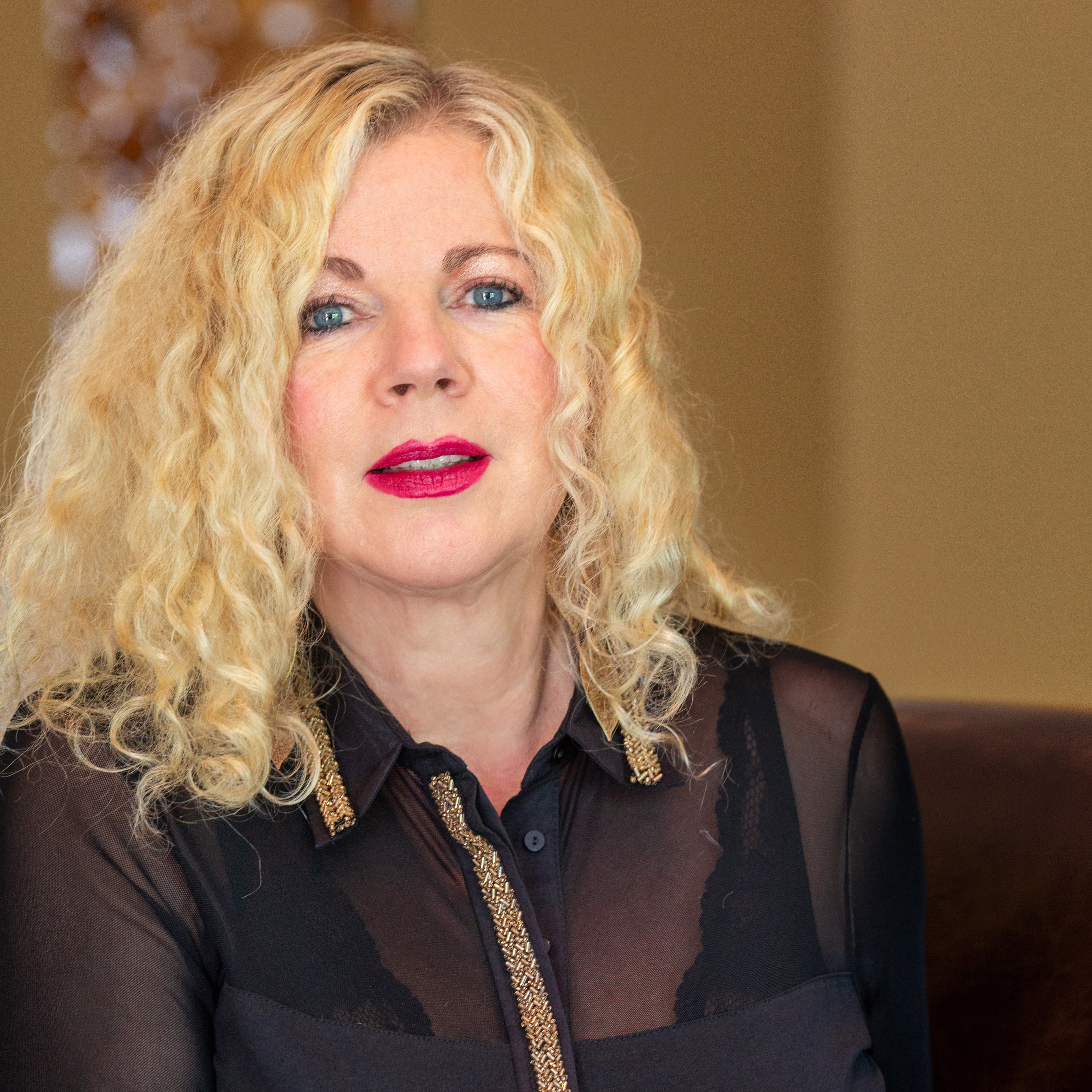
Destiny, real freedom & inner peace
The Tao moment: Peak or quantum moments lead us from a life of endless striving into a dimension of a significant life of meaning.
Whether it’s a heartfelt conversation with a good friend, an epiphany during a vacation, or pure coincidence: everyone knows those rare eye-opening experiences that provide with a new direction. If you can escape your ego, you will experience yourself in a completely new way. Leadership coaching is an important steering tool within this process.

You have to change your life.
Often, important inspirations in life are the consequence of deep but positive cuts: a separation, a new job or self-employment – such things often have the effect of a fundamental life change. All new beginnings are surprising, often to yourself. It may be a wrenching impact or just a blink of an eye that throws you out of your day-to-day routine.
For Wayne Dyer, it all started with a glass of beer. Or rather, a beer that didn’t exist.
For one of the best-known psychologists in the US (over 30 million copies sold of his book Your Erroneous Zones), the occasion for a fundamental change was rather trivial. For many years, Dyer had been in the habit of having a few beers in the evening. This included the ritual of ordering two beers at a restaurant to start with, just in case there was no waiter nearby when the first glass was empty.
Then, one evening, Dyer was out for dinner with his family when he was regretfully informed that the restaurant would be unable to serve him alcohol; the previous evening the restaurant had temporarily lost its liquor license due to an incident. Dyer reacted quite disproportionately by his standards and made his family go to another restaurant.
Later, he reflected on himself and his actions. He started questioning the point of having beers every night and ordering two at once. He was ashamed – vis-à-vis the restaurant staff, vis-à-vis his family, vis-à-vis himself. It had less to do with alcohol addiction, but instead with having a dreary ritual for which there was no need, and perhaps not even an explanation. Above all, he had subjected everything to his irrational will – with an accumulation of behavioral patterns he was unconscious of.
There is no need to apologize for not running on the treadmill.
Dyer first decided to not have a beer the next evening. The morning after, he recalls in the must-see movie Shift (2009), “I woke up very early and smelled the smell of fresh roses, the likes of which I had never noticed before. There was a cartoon on the wall, other things I still vividly recall.”
That was it – and not just for his beer habit. Dyer didn’t hit the bottle again for the rest of his life. Less to avoid his mental addiction than to never lose his newly found feeling of being alive. Dyer had recovered his senses. He saw his surroundings, his environment and, ultimately, the world itself in a new way. There may have been psychological or biological reasons for this. The new perception was what mattered. The blink of an eye. The one small twist that changed everything else. Dyer realigned his life, like the needle of a compass, by reflecting on what had been going wrong before. And what was to have “meaning” in the future: a significance which was not based on his ego, but which was outside of his own self. The way he speaks and walks through Shift like a living Buddha is marked by a deep contentment at being at peace with himself.
Even when poet Rainer Maria Rilke expresses, “You must change your life,” in his poem, this is subject only to a single perception – in this case, a statue in the Louvre in Paris, which prompts him to engage in a digressive inner monologue.
German philosopher Peter Sloterdijk used the last line as the title for a book as a “summary, condensation and evaporation of all religious teachings, exercise instructions and trainings that point people’s own ‘vertical tensions’ out to them and remind them to become aware of their opportunities, to surpass themselves and, ultimately, to work out ‘with a god’.”
Or another example, in Franz Kafka’s “Doorkeeper’s Parable”, a man sees the light meant for him behind a door, but recoils from it and hides behind laws that absolve him of his personal responsibility; a parable that, according to Ulrich Karthaus (in Marcel Reich-Ranicki’s 1000 German Poems), “(symbolizes) an individual imperative of one’s own life, an unrealized potential that we abruptly realize in fulfilling moments of our lives.”
Dyer could certainly subscribe to that. For the real shift, the turning point, does not consist in looking for a new job, partner or place to live, but in shifting away and searching for the source of one’s true destiny and potential. Only then do we approach our own nature (again), i.e. our own God within us, the spirit that guides us as human beings. This is where humans connect with the principles of their own creation. Everything external, material, dissolves. The organic, essential, the essence returns to the foreground. It was never really gone, but is the core intelligence of our existence, as it is laid out in us at birth – and thus “nothing is missing, everything has already been ordered” (Dyer).
Happiness means having no more illusions.
Seeing reality as it is.
The only question remaining: How do you regain access to this original destiny? First and foremost, by means of our own disillusionment, by means of the destruction of ego. Whether we get cozy in our comfort zone, aim to avoid any personal responsibility or go through our life with only existential rituals (including getting rich), all this is subject to self-interests that are not self-interests. Ego people follow individual values, which turn out to be disappointments.
Tao people follow the general, unchangeable values of the laws of nature. According to Dyer’s research, this is the true interest in synchronicity: to be in touch with the source, the laws of creation. “Then a powerful organizing intelligence begins to work for us. Fate is then no longer the driving force, life no longer a struggle, because your own source always seems to nourish you.”
After a “peak experience” (Abraham Maslow), people’s values often change fundamentally. Studies say that, in many cases, those values which had a dominant role before do not even figure in the rankings.
Men’s priorities: Money, pioneer spirit, success, fun and enjoying the respect of others.
Women’s priorities: Family, independence, career, adaptability and attractivity.
Men after a quantum moment: Spirituality, peace of mind, family, a feeling of destiny and honesty.
Women after a quantum moment: Personal growth, self-esteem, spirituality, happiness and forgiveness.
Before the quantum moment, male values consisted in achievements and, in the case of women, in confirming the expectations placed on them as women; almost consistently, you see the successful businessman before your eyes, who – after a few “conquests” (women, business) – celebrates success with his fellow men on his yacht or at the barbecue, while women, in their efforts to juggle having children and pursuing a career, try to please everyone and themselves on all sides.
The quantum moment reveals that women, like men, have been guided only by their unreflected egos – not to be confused with pure egotism. Our Western culture expects a roleplay characterized by the compliance with patterns, e.g. ambition and success. When, in those special “Dyer moments”, people realize that they are only acting as marionettes of values that are wrong for them, as mentioned above, this is the essential revelation which leads them to Kafka’s light – through a door that has always been “meant only for them”, as the doorkeeper promises. However, when they realize what’s really important in their lives, they find that it doesn’t have much to do with their conventional, mostly unreflective lives. And then it’s a matter of “calling in live – your dream is catching you,” or what you really want?
When we make fun of people who live in the country, who take over their parent’s farm or business and marry someone from two villages away, build on an inherited plot of land, have children so that everything starts all over again, we are basically just making fun of ourselves. Average Western values such as having a career, increasing wealth and property, even “self-fulfillment” at any price, are pure ego values. We grow into them because they are a matter of course and it’s expected that we keep grind the big wheel turning, which in reality is a millstone around our own necks or one we’ve had enough of. In our coaching sessions and seminars, we have experienced all ways of life, from the rich and famous, who continue to grow their wealth because they don’t know what else to do, down to people who ask themselves: “Who am I?”; they have just kept going until the price is paid, either in the form of exhaustion or with the question of the importance of all that hard work.
Even after all this time, the sun never says to the earth,
‘You owe me.’
According to Wayne Dyer, the quantum moment is the transition from ambition to meaning. Ambition, according to Dyer, is the symptom of no longer being in touch with what was originally bestowed: your own genius. However, if we detach from ambition (after the quantum moment), the connection with your very own core intelligence and everything “that has long been ordered” opens up again. This connection has long been there. All you need to do is get it going. Once you have returned to this point, entire parameters fall away: There is nothing that we really need to control. The Dharma principle applies: we follow our actual destiny instead of that of the ego. Everything occurs organically instead of resulting from pressure and manipulation. The guiding principle is the “divine”, or at least natural destiny, according to which life is directed.
When the ego attachment to material things falls by the wayside, you will never again have the feeling of raking, heaping and dragging a burden of material things through life. And still there will always be enough money to live on without any worries. In keeping with the motto: Welcome back to your own element!
Sonja Becker has led thousands of coachees to their quantum moment. Simply because she has the intuition to open the right doors in people, behind which freedom and inner peace are waiting. Kafka’s light: this is something you shouldn’t deny yourself.

Contact
Are you curious and want to learn more?
We’d be happy to provide you with profound information about our offerings, with no obligation.

